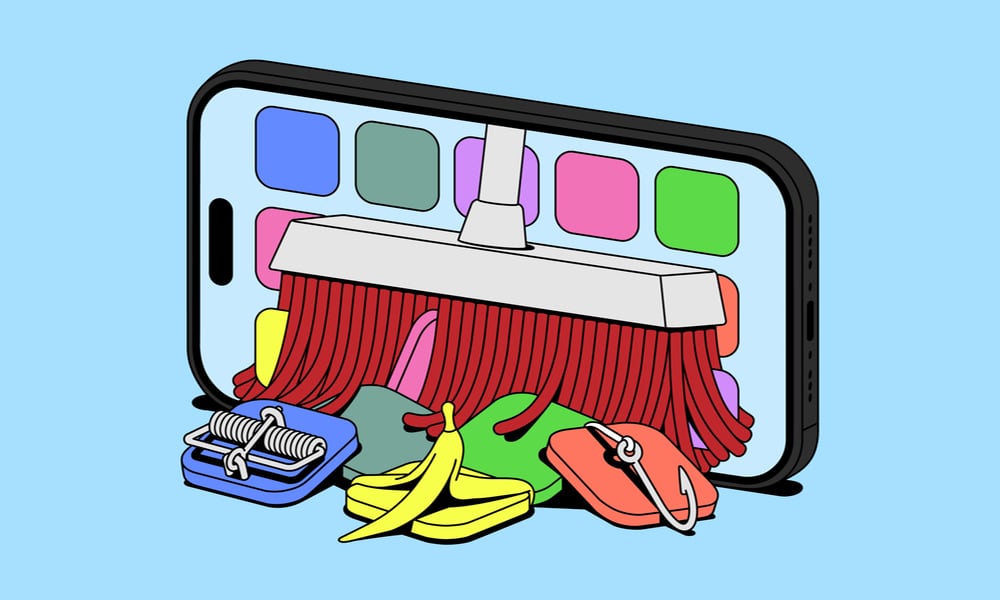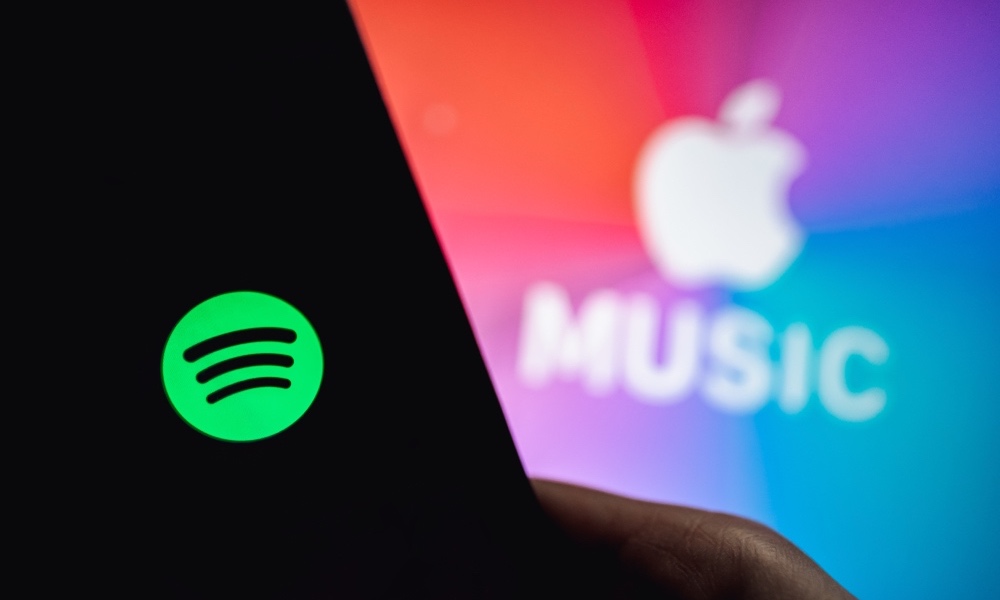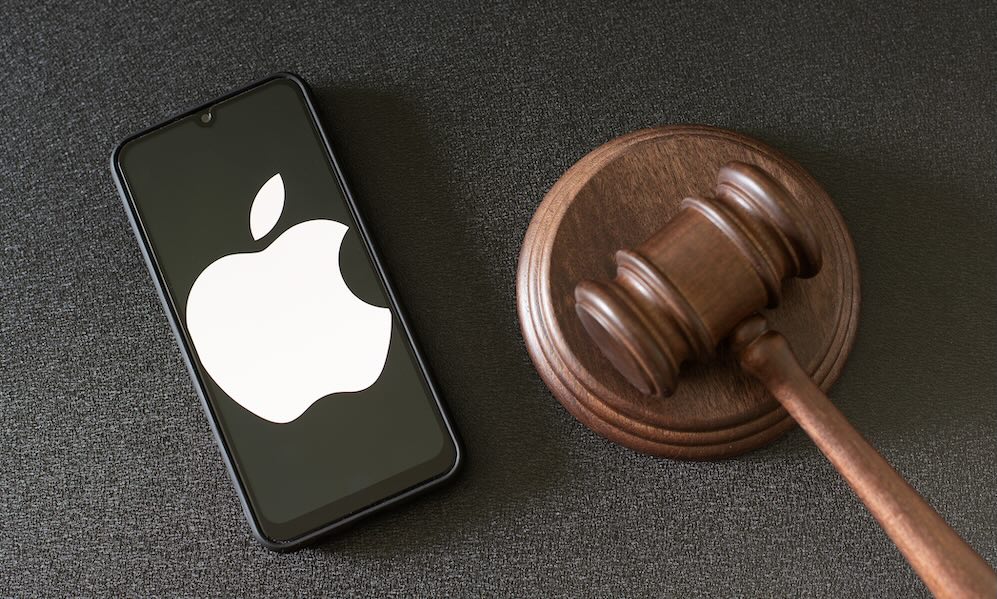The $9 Billion Shield: Apple Emphasizes App Store Security as Legal Pressures Rise

Toggle Dark Mode
With the App Store business model under siege by big developers, courts, and government regulators, Apple is emphasizing one of its closed marketplace’s most significant benefits for iPhone users: fraud prevention.
In a recent newsroom announcement, Apple outlines how the App Store has stopped over $9 billion in fraudulent transactions in the past five years, with over $2 billion in 2024 alone. The company adds that it’s also blocked close to two million “risky app submissions” from reaching users.
Since launching in 2008, the App Store has been a safe and trusted place for users and a vibrant marketplace for developers to grow their businesses around the world. In the last five years, the App Store has protected users by preventing over $9 billion in fraudulent transactions, including over $2 billion in 2024 alone, according to Apple’s annual App Store fraud analysis.
Apple goes on to explain how its “strong antifraud infrastructure” identifies fraudulent accounts, noting that more than 146,000 developer accounts were terminated and 139,000 developer applications were denied in 2024 “over fraud concerns.”
Interestingly, this doesn’t just apply to developer accounts. In 2024, Apple rejected a staggering 711 million customer account creations (new Apple IDs) and deactivated 129 million accounts. Many of these were believed to exist for the purpose of “spamming or manipulating ratings and reviews, charts, and search results” on the App Store.
Here are a few other interesting stats from Apple’s announcement:
- Apple’s App Review team reviews 150,000 app submissions per week.
- App Review helped over 220,000 developers publish their first app last year.
- Over 7.7 million App Store submissions were reviewed in 2024.
- More than 1.9 million apps were rejected for security, reliability, user experience, privacy violations, or fraud concerns.
- Over 37,000 apps were removed from the App Store last year for fraudulent activity.
- Over 43,000 app submissions were rejected for “containing hidden or undocumented features.”
- Over 320,000 submissions were rejected for copying other apps or being outright spam.
- Over 17,000 apps were removed for “bait-and-switch maneuvers,” misleading users into downloading an innocuous app that hides scams, malware, or other risks to users.
- In 2024, 400,000 app submissions were rejected for privacy violations.
- More than 143 million fraudulent ratings were removed from App Store listings, resulting in more than 7,400 apps disappearing from the App Store charts.
- Nearly 9,500 deceptive app listings were removed from App Store search results to prevent them from interfering with legitimate developers.
Apple also notes that it identified nearly 4.7 million stolen credit cards being used on the App Store in 2024, resulting in a ban of over 1.6 million accounts.
While Apple’s press release unsurprisingly comes across with the usual strong PR spin, the company isn’t wrong about the benefits of the App Store. Five years ago, we outlined several ways Apple’s App Store payment system benefits consumers, and none of that has changed since then. You’re getting a private and secure payment system that doesn’t risk exposing your credit card information or even your name to anyone other than Apple; it’s ridiculously simple to use (which is also a boon for developers who benefit from customers making impulse purchases with little more than a double-tap of their side button), there are strong parental controls, and it’s managing recurring subscriptions is nearly effortless compared to dealing with developers one-on-one.
Of course, big developers like Epic Games and Spotify argue that Apple’s 30% commission stifles their business and is downright anticompetitive when levied against services that compete with Apple’s own, such as Apple Music. They’re not wrong about that, but Apple’s counterargument is that it’s entitled to be paid for the work it does in running, maintaining, and policing the App Store, not to mention the exposure that it offers developers.
As with most things, the truth is somewhere in the middle. Apple’s hold over the App Store can be draconian; it decides which apps are permitted, and therefore allowed to exist on people’s iPhones, and its anti-steering rule — the one that prohibits developers from even telling users about web-based payment options — is indefensible. Apple has gotten smacked hard for that one, especially after it chose to not only defy a 2021 injunction forcing it to open up external payment links but also play FAFO with the courts when called to account for its “malicious compliance.”
For now, Apple has had to significantly relax its rules in the US and even allow Epic Games’ Fortnite to return to the App Store, but that may be a short-lived reprieve, as it’s appealing the decision on all fronts.
So, if today’s announcement feels like damage control, that’s because it is. Apple isn’t saying anything wrong here, but it’s also cherry-picking the best things about the App Store payment system to show users the very real benefits while also tacitly implying that other distribution and payment methods wouldn’t benefit from its protections. That’s all true, but it’s also a clear indication of why Apple should promote the App Store based on its competitive advantages over alternatives rather than doing everything it can to keep them off the playing field.









